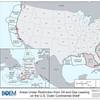Flag State Auditing Discussed at World Maritime University
Malmö’s World Maritime University (WMU) seminar on Flag State Audit placed a special emphasis on smaller maritime states. The seminar attracted representatives of the maritime administrations of the Bahamas, Barbados, Belize, Luxembourg, Madeira, Malta India, and Sweden, several academics, and representatives of BIMCO, the International Association of Classification Societies (IACS), INTERTANKO, IMO, plus of course a large number of eager WMU students.
The main topic of the seminar was the IMO Flag State Auditing Scheme. Although many of the speakers admitted to an initial hesitancy, they have all now concluded that this scheme should be given full support. Views differed on whether or not it should in the end be made mandatory rather than voluntary. Although voluntary to begin with, several of the speakers expected that pressure from many quarters would ultimately make it in effect mandatory.
Although the audit is confidential, several speakers underlined the need for transparency and expect that ultimately most parties will be so used to openness that the main conclusions of the audits will be made available.
The shipping industry was represented by Carsten Melchiors (Secretary General of BIMCO) and Assistant Director Kristian R. Fuglesang (INTERTANKO). In their interventions, they both outlined the shipping Industry Guidelines on Flag State Performance, issued by the Round Table of international shipping associations. Melchiors emphasised the need for transparency, and referred to various aspects of the responsibilities of the flag states.
Fuglesang mentioned examples of what ship owners expect of flag states, including “seven Cs”: Competent Administrations, Commitment, Consistency, Corruption-Free, Competitive, Capital-Friendly, and Casualty Investigation. He said that shipping companies have good reason to put pressure on the flag states they use to make sure that they are up to the standard required, and this could have an impact on the number of countries that are prepared to be audited under the IMO Flag State Auditing Scheme. Similar pressure might be put on the shipping companies from their customers, i.e. the charterers, thus extending the pressure for proper auditing. Fuglesang underlined the importance of flag states, and suggested also that classification societies should be encouraged to be more selective in accepting to work for under-performing Flag states.











